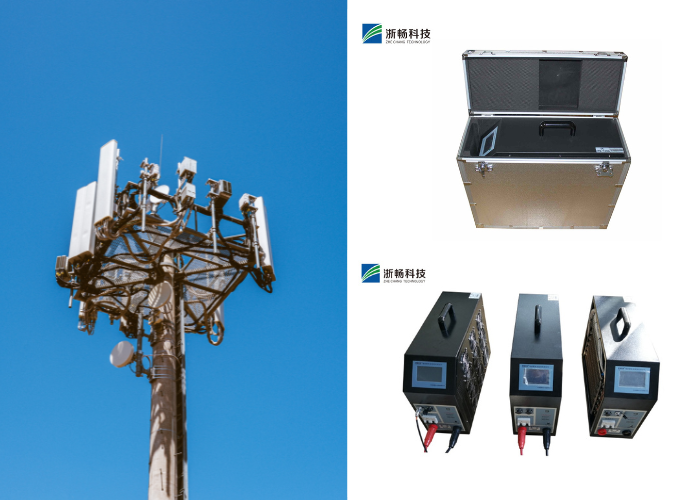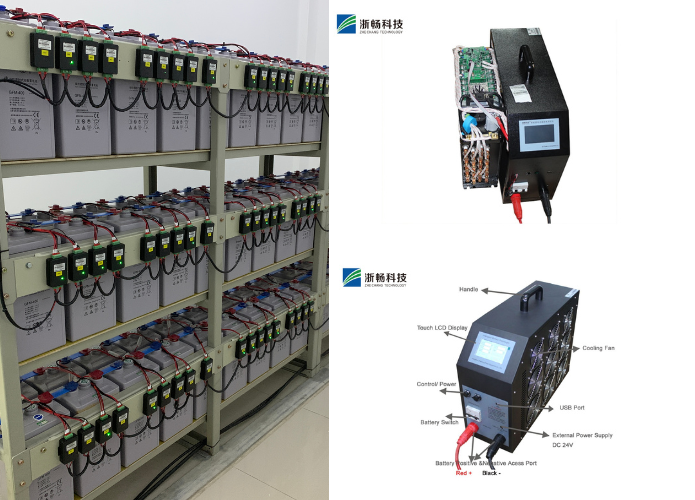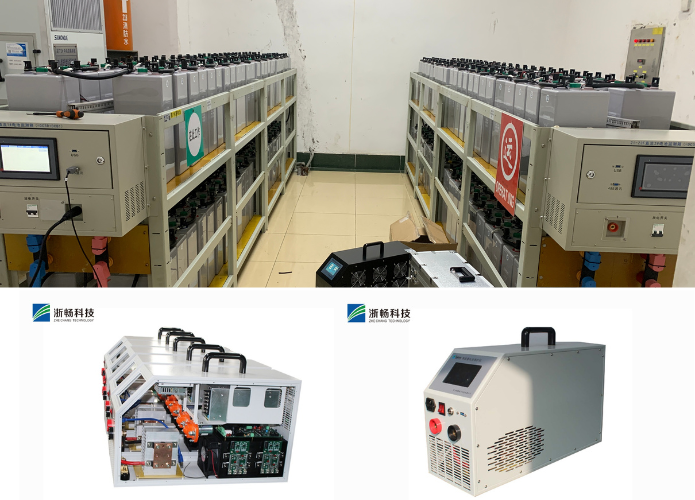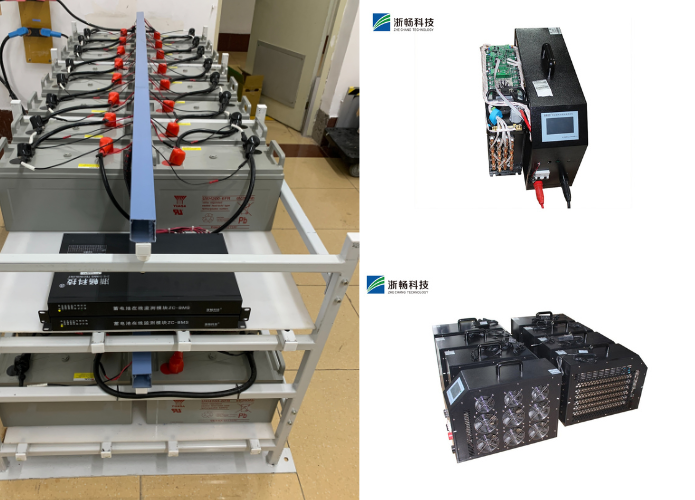How a Lithium Battery Load Tester Enhances Performance Evaluation
Introduction
In the world of batteries, particularly lithium batteries, ensuring optimal performance is paramount for both consumer satisfaction and operational efficiency. As our reliance on technology and portable devices continues to grow, understanding the health and efficiency of these batteries has become more crucial than ever. Lithium batteries, known for their high energy density and lightweight properties, power everything from smartphones to electric vehicles. However, like all batteries, they can degrade over time, affecting their performance and safety. This is where the lithium battery load tester comes into play, serving as a vital tool for evaluating battery health. In this blog, we will delve into how these testers enhance performance evaluation, focusing on their significance, functionality, and the myriad advantages they offer for various applications.

Understanding Battery Performance Evaluation
Battery performance evaluation is a critical process that involves assessing several key metrics, including capacity, health, and efficiency. This evaluation is essential across a wide range of applications, from electric vehicles to portable electronics. By accurately measuring these parameters, users can gain valuable insights into the battery's current state and its potential longevity. Capacity refers to the total energy a battery can store and deliver, while health encompasses the overall condition of the battery, including its ability to hold a charge over time. Efficiency measures how effectively the battery converts stored energy into usable power. Together, these assessments enable users to predict battery life, enhance safety by identifying potential failure points, and ensure reliability in performance. Regular evaluations can prevent unexpected failures, optimize charging cycles, and improve overall device functionality, making battery performance evaluation an indispensable aspect of modern technology management.
What is a Lithium Battery Load Tester?
A lithium battery load tester is a specialized device engineered to evaluate the performance of lithium batteries by applying a controlled load while simultaneously monitoring key electrical parameters such as voltage and current. This testing method accurately simulates real-world usage conditions, enabling users to assess how a battery behaves under typical operational stress. During the test, the load tester applies a specific amount of current to the battery, mimicking the demands it would face in everyday applications. By observing the voltage drop during this load application, users can gain insights into the battery's capacity and overall health. Additionally, these testers often feature digital displays that provide real-time data, making it easier to analyze performance metrics. Ultimately, a lithium battery load tester is an invaluable tool for technicians and engineers, allowing for comprehensive evaluations that inform decisions about battery maintenance, replacement, and safety, ensuring optimal functionality in various applications.
The Role of Digital Battery Load Testers
Digital battery load testers, including those designed for lithium batteries, have fundamentally transformed the landscape of battery testing. These advanced devices provide precise readings and incorporate user-friendly interfaces that facilitate the testing process for both professionals and hobbyists alike. One of the key advantages of digital testers is their ability to deliver real-time data, which is crucial for accurate evaluations. This immediacy allows users to observe how the battery responds to load in the moment, enabling quicker and more informed decisions about battery health and performance. Additionally, many digital models feature advanced functionalities such as data logging, Bluetooth connectivity, and customizable settings, further enhancing their usability. The clarity of digital displays, combined with intuitive controls, makes it easier for users to interpret results, reducing the likelihood of errors associated with manual readings. Ultimately, digital battery load testers streamline the evaluation process, ensuring that batteries are assessed efficiently and accurately in various applications.
How Lithium Battery Load Testers Work
1.Load Application: The first step in the testing process involves the load tester applying a specific load to the lithium battery, typically measured in amps. This step is crucial as it simulates the actual current draw that the battery would experience during regular usage. By replicating real-world conditions, the tester can effectively gauge the battery's response to sustained power demands, which is vital for understanding its operational limits and efficiency.
2.Monitoring: During the load application, the tester continuously monitors the battery's voltage in real-time. This ongoing assessment is critical for evaluating how the battery performs under stress. By tracking voltage fluctuations, users can identify immediate changes that may indicate issues, such as excessive internal resistance or potential failure points, providing invaluable insights into the battery's reliability.
3.Data Analysis: After completing the test, the data collected—including voltage drop, recovery time, and other metrics—is analyzed to determine the battery's overall health and performance characteristics. This analysis helps identify any degradation in capacity, assess how well the battery recovers after load removal, and ultimately informs decisions regarding maintenance or replacement, ensuring optimal battery performance in various applications.
Key Benefits of Using a Lithium Battery Load Tester
1.Accurate Performance Metrics: One of the primary benefits of using a lithium battery load tester is the provision of accurate performance metrics that reflect a battery's real-world capabilities. By applying a specific load, these testers can simulate the conditions under which the battery operates, revealing essential data such as voltage drop and discharge rates. This information is invaluable for making informed decisions regarding battery maintenance or replacement. Users can determine if a battery is still within acceptable performance ranges or if it has begun to degrade, thereby ensuring that equipment continues to operate efficiently and reliably.
2.Early Detection of Issues: Regular testing with a lithium battery load tester allows for the early detection of performance degradation. By routinely assessing battery health, users can identify potential issues before they escalate into critical failures. Early identification can save considerable time and money by preventing unexpected downtime and costly repairs. This proactive approach enhances the lifespan of battery systems and promotes a smoother operation overall.
3.Enhanced Safety: Testing lithium batteries is crucial for safety, particularly in high-stakes applications such as electric vehicles, industrial machinery, and emergency backup systems. A failure in these contexts could lead to dangerous situations, including fire hazards or equipment malfunctions. Load testers ensure that batteries operate within safe parameters, helping to prevent incidents that could jeopardize safety for users and equipment alike.
4.Improved Efficiency: For businesses that rely heavily on battery-powered equipment, understanding battery performance is essential for optimizing operational efficiency. A lithium battery load tester helps identify the most effective charging cycles and usage patterns, allowing for better battery management. This optimization not only enhances performance but also reduces downtime, ensuring that operations run smoothly and effectively.
5.Versatility: Many digital battery load testers are designed to accommodate various battery types, not just lithium. This versatility makes them an invaluable tool for technicians and hobbyists alike, as they can be used across multiple applications and technologies. Whether dealing with lead-acid, nickel-cadmium, or lithium batteries, these testers provide comprehensive insights, making them essential for anyone working with diverse battery systems. Their adaptability ensures that users can rely on one device for a wide range of testing needs, enhancing both convenience and cost-effectiveness.

Choosing the Right Lithium Battery Load Tester
When selecting a lithium battery load tester, consider the following factors:
1.Load Capacity: When selecting a lithium battery load tester, it's essential to ensure that the device can handle the specific load requirements of your batteries. Different applications may demand varying loads, so choosing a tester with an appropriate capacity guarantees accurate assessments and reliable results.
2.Data Display: Opt for models with clear digital displays that provide easy-to-read data. A well-designed display can significantly enhance the user experience, allowing for quick interpretation of performance metrics without the need for complex calculations or manual readings.
3.Portability: For professionals who need to test batteries on-site, portability is a crucial factor. Consider the weight and size of the tester; a lightweight, compact design makes it easier to transport and maneuver in various settings.
4.Features: Advanced features such as Bluetooth connectivity, data logging, and software integration can greatly enhance the usability and functionality of a lithium battery load tester. These features enable seamless data transfer, comprehensive tracking of battery performance over time, and easier integration with other tools, making the testing process more efficient and informative.
Practical Applications of Lithium Battery Load Testers
1.Electric Vehicles (EVs): In the rapidly growing EV market, ensuring the reliability of lithium batteries is critical. Load testers help manufacturers and technicians evaluate battery performance, contributing to safer and more efficient vehicles.
2.Consumer Electronics: For manufacturers of smartphones, laptops, and other devices, using lithium battery load testers ensures that products meet performance standards before reaching consumers.
3.Renewable Energy Systems: In solar power systems and energy storage solutions, regular testing of lithium batteries can optimize performance and longevity, making load testers essential for maintenance.
4.Industrial Applications: Warehouses and manufacturing facilities that use battery-operated equipment benefit from load testing to ensure that their operations run smoothly without unexpected interruptions.
Conclusion
The use of a lithium battery load tester is invaluable for enhancing performance evaluation in various applications. By providing accurate metrics, facilitating early issue detection, and promoting safety, these testers play a crucial role in the management of battery health. As technology continues to evolve, incorporating a digital battery load tester into routine maintenance can significantly impact performance, efficiency, and reliability. Embracing these tools is not just a trend—it's an ultimate step toward a more efficient and safe battery-powered future.
Popular Battery Tester
Popular Battery Tester
Latest News
Latest News


Get Price of Battery Tester
Get Price of Battery Tester
Address:
Floor 3, Building 1, No.1418-60, Moganshan road, Hangzhou city, Zhejiang Province, China.310015

















































